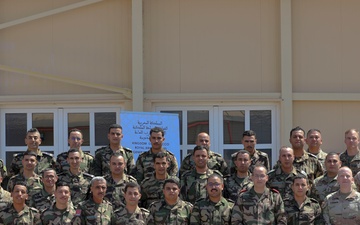In a significant recalibration of its approach to African security partnerships, the U.S. military is shifting its messaging to emphasize regional self-reliance, telling allied nations across the continent that they must begin to prepare to stand more on their own amid evolving global priorities.
This strategic shift comes as Washington reassesses its global military posture, redirecting attention and resources toward countering near-peer competitors like China and Russia, while encouraging African nations to assume greater responsibility for their own security.
Senior defense officials, speaking during recent visits to West and East African military hubs, acknowledged that while the U.S. will continue providing training, intelligence, and logistical support, the era of sustained American troop presence and direct counterterrorism intervention may be coming to a gradual end.
“This is not abandonment—it’s empowerment,” said a senior Pentagon official during a briefing in Nairobi. “African nations are increasingly capable, and we want to partner with them in a way that promotes sovereignty, sustainability, and shared security goals.”
The recalibrated approach has been underscored by recent drawdowns in countries like Niger, Chad, and Burkina Faso, where political instability and rising anti-Western sentiment have complicated long-standing military cooperation. The U.S. has also closed or reduced operations at several drone bases and special forces outposts in the Sahel, once central to its counterterrorism strategy against groups like al-Qaida in the Islamic Maghreb (AQIM) and ISIS-West Africa.
Instead of direct intervention, the U.S. is prioritizing capacity-building, with renewed investment in joint training programs, regional military academies, and support for multilateral initiatives such as the G5 Sahel Joint Force and the African Union’s peacekeeping framework.
However, some African military officials and analysts worry that the transition could leave security gaps that militant groups and geopolitical rivals might exploit. Russia’s Wagner Group and Chinese security companies have already increased their presence in parts of the continent where U.S. influence has waned.
“The risk is real,” said Lt. Col. Amadou Diallo, a Malian defense strategist. “If this shift is not managed carefully, extremist factions could take advantage of the vacuum, and authoritarian actors might fill the void.”
Washington is also encouraging African governments to invest more heavily in domestic defense budgets, improve civil-military accountability, and engage in regional intelligence sharing to confront transnational threats more effectively.
Despite the shift, U.S. officials maintain that Africa remains a key theater in global security, especially in preventing the spread of extremism, protecting maritime routes, and ensuring democratic resilience.
“The U.S. is not retreating from Africa,” said Gen. Michael Langley, commander of U.S. Africa Command (AFRICOM). “We are transforming our role to better support long-term regional stability and independence.”
As the continent faces mounting challenges—from insurgencies in the Horn of Africa to instability in the Sahel and Central Africa—this new U.S. posture signals a pivotal moment in the evolution of Western military engagement on the continent.
Source : Swifteradio.com


